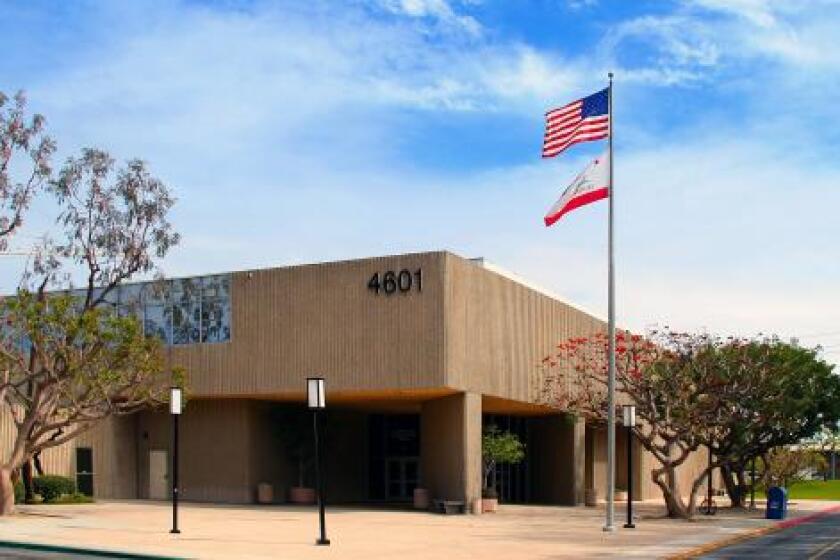Islamic holy days begin with first daily fast
- Share via
Deepa Bharath
The month of Ramadan is a special time for the 150 Muslim students at
UC Irvine.
It’s time they take to reconnect with God, but they also
strengthen the bond among themselves, said Osman Umarji, president of
the UCI Muslim Student Union.
Today is the first day of Ramadan, when Muslims all over the world
don’t eat or drink from sunrise to sunset. So the students wake up at
5 a.m. and have breakfast together on campus, said Umarji, a
fifth-year electrical engineering major.
“And in the evening, we break our fast together at the food court
or something at the university,” he said. “Then we go to the mosque
to pray.”
That’s something most Muslims do during this month, which
officially begins Saturday although Muslims start their fast from the
day before, said Imam Mostafa Al-Qazwini of the Islamic Educational
Center of Orange County.
“We encourage that people don’t eat alone when they break their
fast, that they share their meal with someone,” he said.
Ramadan was introduced by Prophet Muhammad, who is believed to be
God’s messenger, Al-Qazwini said. The month of fasting was introduced
by the prophet in year 2 of the Islamic calendar, which was the
second year after Muhammad moved from his birthplace of Mecca to
Medina. It was in Medina that the prophet established Islam as a
religion, Al-Qazwini said.
“He commanded Muslims to observe the fast so they may achieve
piety, righteousness and self-discipline,” he said. “It’s a month of
intense devotion to God, when we purify our brain, soul and body from
all toxins.”
The month of Ramadan ends with a celebration -- the feast of Eid
Al-Fitr.
“For Muslims, it’s a time to celebrate with family and friends,”
he said. “To us, it’s what Christmas is to Christians.”
On that day, they have a special breakfast. Orange County Muslims
also offer $10 a person as charity -- money considered the equivalent
of one meal in this area, Al-Qazwini said.
Over the 29 or 30 days of the month of Ramadan, which is defined
by the Imams or the Muslim religious leaders, students finish reading
the entire Koran, the holy book of Islam, which followers believe is
the word of God.
Umarji looks at Ramadan as an opportunity to restructure his life,
he said.
“We also read the Koran during this time,” Umarji said. “It
reminds us of all the principles that will make us better individuals
and take us closer to God.”
Muslims are even forbidden from fighting or waging battles during
this holy month, he said.
“When you don’t eat or drink, you are more patient and focused,”
Umarji said. “You won’t lie or cheat or commit a crime. It basically
reinforces concepts that already exist as part of the faith.”
Sabiha Khan, a spokeswoman for Council on American-Islamic
Relations, said Ramadan increases her empathy toward the less
fortunate.
“It’s a time to share experiences with family, friends and
neighbors,” she said. “When we don’t eat or drink, we have more time
to connect with God at a deeper level.”
* DEEPA BHARATH is the enterprise and general assignment reporter.
She may be reached at (949) 574-4226 or by e-mail at
All the latest on Orange County from Orange County.
Get our free TimesOC newsletter.
You may occasionally receive promotional content from the Daily Pilot.



